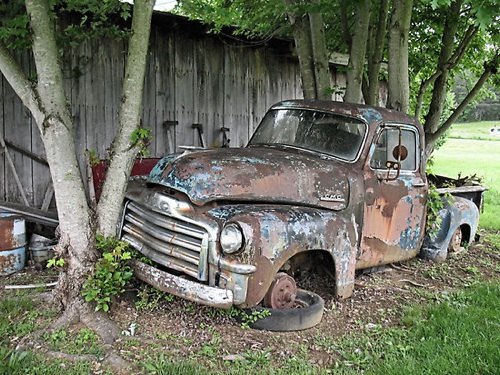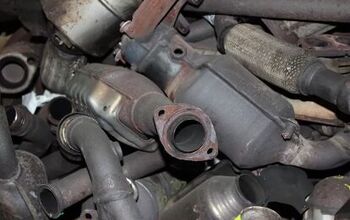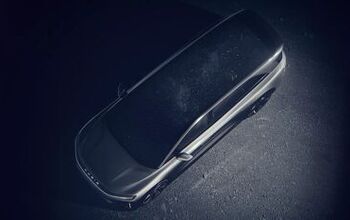Hammer Time: How to Cheat on the Cash-for Clunkers Program, Part One
I remember when I was 16 years old, one of my friend’s dad had a near-new Toyota Celica All-Trac. It was gorgeous. The black paint was svelte and flawless. The leather pristine. It was a true work of art. Except it had one tiny little flaw on the vehicle. The VIN was not ‘authentic.’ It had been taken off another vehicle from ‘far far away.’ This was in the bad old days where odometer rollbacks (which still happen) and washed titles (ditto) were still common. Today? Well, I’ll put it to you this way, even a finance company with as many computers as NASA was screwed seven ways from Sunday by a bunch of Nigerians using an old lady’s information. The clunker auditors are going to have to keep their eyes REAL open in this ‘information age’ to catch these snakes . . . and it won’t be easy. Here’s just a small slither of stealth that can happen just on the trade-in side of the equation.
What can happen once a vehicle is traded in? An awful lot. For starters it can be sent abroad. Really. Really. Cheap. It got so bad that the Mexican government (one of many destinations) decided to allow only ten-year-old cars to be registered that came from Yankeeland. It didn’t matter in the end though what the government’s ‘official’ position was. The business of bribery continues to this day on both sides of the fence, and cars found their way into the system regardless of what the laws were. By the way, Mexico is just one place where a ‘clunker’ won’t be missed.
What does this mean for cash for clunkers? It means there isn’t much stopping a recycling center from stripping off the VIN’s. Giving the requisite pictures and evidence to whoever needs it, and making private arrangements to send the vehicle outside the US. The percentage profit would be somewhere between a title pawn and meth distribution, and the governments ability to track it down through paperwork alone would be zero. So long as the VINs match, the people are genuine buyers, and the people involved keep their yaps shut, it will just be a nice four figured profit per vehicle. No questions asked. But this is just really a very small slice of ‘trade-in’ paradise. A far bigger one?
Open up your local newspaper and look under the ‘auction’ or ‘impound’ section. You’ll see hundreds of vehicles with their VIN numbers displayed in all their glory. Most of these cars come from folks who don’t want or need their clunker anymore. They may be as poor as dirt, taking drugs, out of work, or in jail, but they still technically own it. The price to buy one of their clunkers at a public auction? If it’s fit for the crusher, the cost today is about $100 due to cheap commodity prices. The prior owner has to be notified before the sale and this information is often in turn given to the new owner of the vehicle.
Many of these vehicles are never put into a new name. If it’s got even a breath of light, it can be ‘flipped’ and sold with the paperwork intact. No questions asked and no profits traced. There is absolutely no auditing for the transfer of ownership in most states. Just the proceeds from the sale. With a very small level of computer knowledge (or bribery) you can also find out practically everything about the person.
Since ‘Cash for Clunkers’ doesn’t require that the person have insurance for the vehicle before trade-in, there’s no stoppage that can occur there. Big mistake. A lot of folks who get their vehicles sent to the impound/tow lots usually move, involuntarily, without a forwarding address. In turn a lot of apartment complexes will request the towing of a vehicle from their property if the vehicle has anything from an expired tag to an eviction.
You can get these car for almost nothing if you’re a professional, develop a Fake ID with a little help and monetary dispensation, buy the car using their identity, and simply have the government paperwork forwarded to a PO Box which can then secure the taxpayer largesse. It’s easy. Unless those who audit this operation can track the VIN’s status online, which is hard since a lot of the local papers aren’t given an online edition, everything will seem picture perfect to an auditor.
But there are ways to find this information out. One would be to target the audits based on income. If a person is only earning $15,000 a year and they’re buying a car for the same price, that would be a red flag. So would contacting the county government and finding out whether the vehicle was impounded at a certain point. Court orders and impounds require paper trails and most of them can be found in a minute’s time. There is also one very strong impediment to sending these cars out of the US. That would be to have the clunker sent ‘on-site’ to a salvage auction where it could be crushed in exchange for receiving the rebate.
If the auditors are positioned there and literally see the crushing of the car, it eliminates the possibility of the car being recycled somewhere else. The system would hardly be a fail-safe at this point. But it would be a start. In the next installment I’ll focus on the dealer.
More by Steven Lang
Latest Car Reviews
Read moreLatest Product Reviews
Read moreRecent Comments
- Analoggrotto Tell us you're vying for more Hyundai corporate favoritism without telling us. That Ioniq N test drive must have really gotten your hearts.
- Master Baiter EV mandates running into the realities of charging infrastructure, limited range, cost and consumer preferences. Who could possibly have predicted that?
- Jkross22 Our experience is that the idea of leasing/owning an EV is better than the experience of getting a closer look at them and coming away underwhelmed.
- Ajla I never thought I'd advocate for an alphanumeric but "Junior" is a terrible name.
- Arthur Dailey So pay moving costs, pay penalties or continue to pay for space in the RenCen, and purchase all new furniture and equipment. Rather than just consolidating in place and subleasing. Another brilliant business decision.


































Comments
Join the conversation
The trick will be in verification of ownership for the required year. I bet it will be some paper form you send in with no backup checking. I intend to lie on the form saying I owned the car for a year. Odds are it won't be checked. I'll buy my Jetta Diesel new, then pocket the $4,500 and sell the car for near what I paid for it a few months later. This operation will not reimburse me for the decades of government ripping me off with the Social Security Ponzi scheme, but it's a start.
Personally this is another government sham. Companies like http://sicashcars.com and http://cashforcarsnewyork.com have actually been buying more cars since commencement of this plan. Theres still a market for these older cars. People cant afford to buy new cars. Why not just sell your car instead of getting roped into a car you dont want and cant afford. By gettting cash for cars you have the ability to go and get another used vehicle you can afford.